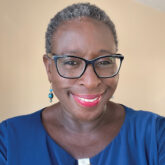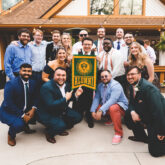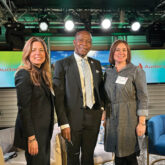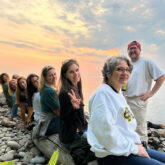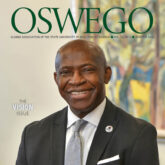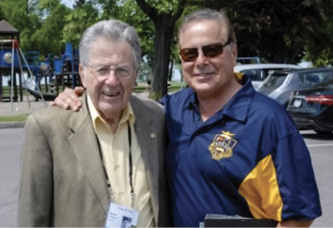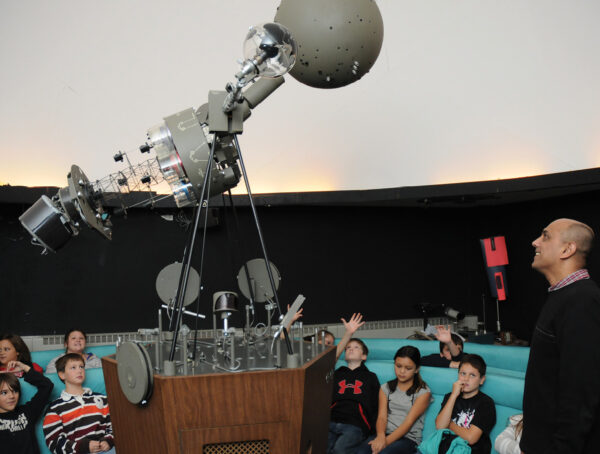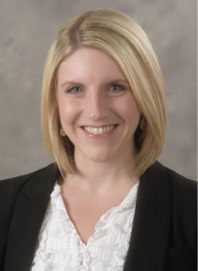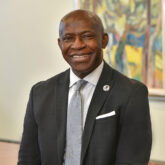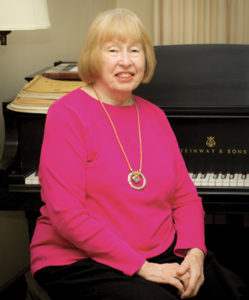 Dr. Marilynn Smiley
Dr. Marilynn Smiley
Some people really know how to make the most of their retirements. Marilynn Smiley is one of those people.
When she retired in 2014 after 53 years in the Music Department, she was finally able to spend more time on her research projects, community service and traveling.
As president of the Oswego Opera Theatre, she helps raise funds to produce two professional operas a year—giving Oswego faculty, students and community members an opportunity to participate in a high-quality opera and providing the general public a chance to attend a production not typically afforded to a community the size of Oswego.
As co-president of the American Association of University Women (AAUW) Oswego chapter, she coordinates the GEMS (Girls Excelling in Math and Science) recognition program at the middle school to encourage young women to pursue careers in STEM disciplines. She also collected and co-edited a book on Remarkable Women in New York State History (History Press, 2013) to, as she said, “document and share the stories of these women who really made a difference in our communities across the state.”
She continues to publish articles and reviews of American composers and musical CDs for the Journal of the Society for American Music. She contributed several entries on a book about 19th-century American composers, and attends and presents at conferences of the American Musicological Society and AAUW.
Named a recipient of the 1973 Chancellor’s Award for Excellence in Teaching and as a distinguished teaching professor in 1974, Dr. Smiley served as department chair; was a long-time adviser to Vega, Oswego’s honor society for women; and taught a range of music history and literature courses.
Among her most visible professional accomplishments at SUNY Oswego was establishing the Penfield Library’s collections of musical scores, recordings and books to support the creation of the music major.
“I needed to create a balanced collection from all eras and styles of music—everything from the complete works of Bach and Handel to pop, jazz, rock and folk,” she said.
Today, she enjoys traveling all over the world—making a point to seek out the music and historic sites within that country or area to better understand the culture.
“Music really is a universal expression,” she said. “Every culture has music—no matter how sophisticated or simple. I tried to teach my students to have a lifelong interest in music so they would be able to go to a concert or hear live music and understand some of the complexities of it and appreciate it. And sometimes the aesthetics of the music wave over you and transport you.”
Some of her recent research has focused on the role of music in the lives of refugees— particularly the Jewish refugees who were housed at the “Safe Haven” of Oswego’s Fort Ontario in August 1944.
“Music can have a functional role—like a lullaby to put a baby to sleep or drums to prepare soldiers for battle,” she said. “For the refugees, music helped get their minds off the horrible situation they were in. They needed something beautiful in their lives at a difficult time.”
More from Class Notes
Class Notes – Winter 2024
Class Notes - Winter 2024 Editor’s Note: Due to changes to our typical production schedule, this Class Notes reflects submissions from July …
From the Archives – Winter 2024
From the Archives - Winter 2024 SAVE THE DATE: April 8, 2024 Oswego will experience a very rare total eclipse of the …
Oswego Matters – Winter 2024
Oswego Matters - Winter 2024 As a mother of two young children, I’ve grown accustomed to frequent transitions; to new beginnings; …

